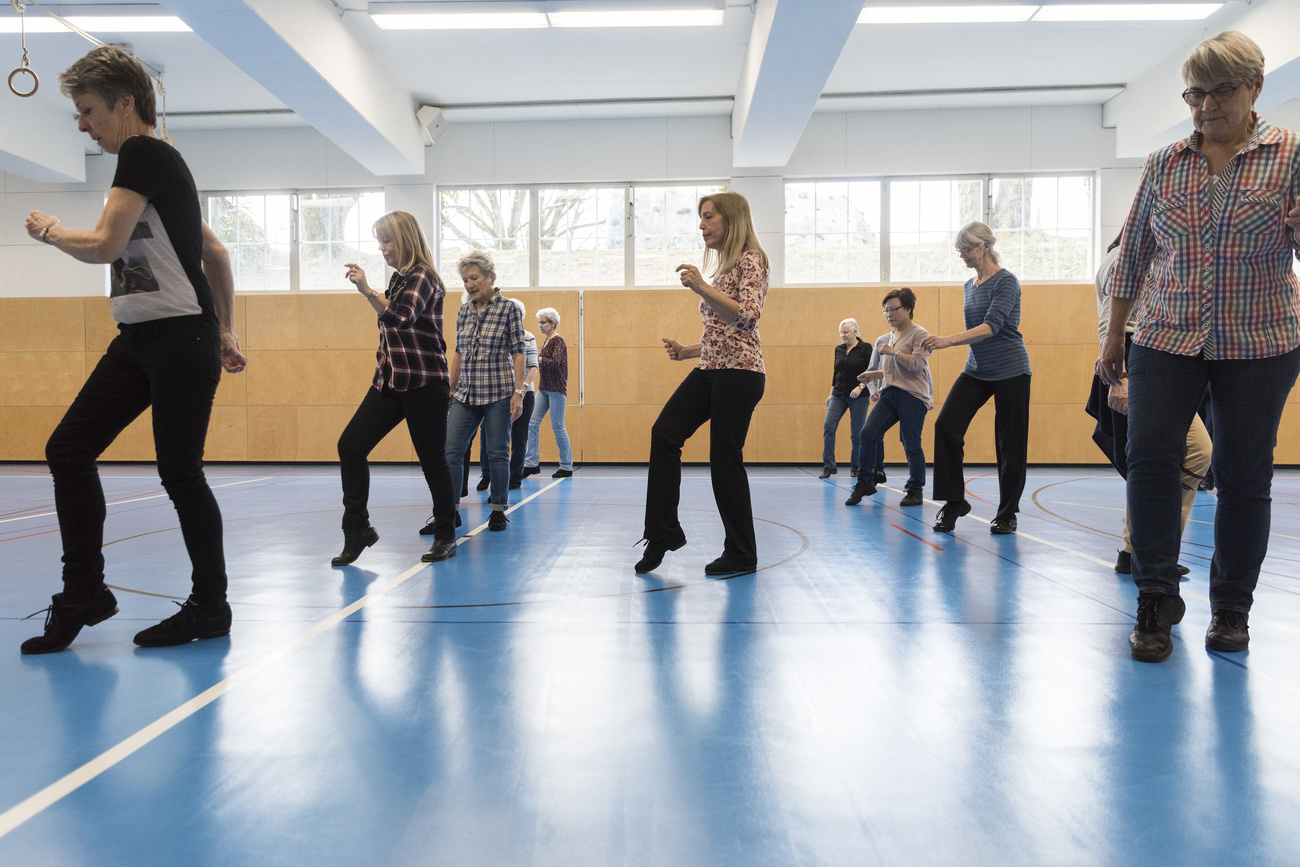
Swiss doctors cleared to prescribe dance therapy

Zurich doctors can now issue ‘social prescriptions’ for therapeutic activities ranging from gardening and dancing to debt counselling.
+Get the most important news from Switzerland in your inbox
Zurich City’s parliament has approved the trial, which will cost CHF2.5 million. Four outpatient medical centres can refer patients to so-called ‘Link workers’ who will arrange the activities.
The pilot project has been called “an important contribution to public health” that could relieve pressure on the health system. But some political parties have labelled it a “luxury treatment at the taxpayer’s expense”, arguing that current health options are adequate to meet patients’ needs.
+ How to fix Switzerland’s costly healthcare system
Social prescriptions are aimed at patients who do not feel improvement from conventional medical treatment, such as those suffering from chronic pain or long Covid. The aim is to supplement the healing process with activities and to break social isolation.
People not just biological
The concept was developed in the 1990s in Britain and has also existed for some years in Austria.
Stéfanie Monod, co-head of the Department of Epidemiology and Health Systems at the University Centre for General Medicine and Public Health in Lausanne, believes the trial is promising.

More
Two-thirds of Swiss in favour of single health insurance fund
“People not only biological! With the evolution of medicine, we tend to think that everything is mechanical and understandable at the organ level,” she told the RTS Forum programme. “But in reality, we are also social animals.”
“A person who is completely isolated will have more health issues and may experience depression. We need social contact, activities that allow us to escape certain difficulties and chronic suffering,” she added.
Potential cost savings
Several types of illnesses could benefit from these social activities, such as long-term chronic illnesses that weigh heavily on morale and restrict social contact.
+ Six lessons from Swiss healthcare vote
“Health insurance has been designed around services that are often technical, measurable and have been certified by the medical profession. But adding these biomedical services together does not necessarily result in an improvement in health or quality of life,” said Monod.
The new approach will certainly have benefits on health costs “if there are fewer cases of depression, fewer hospitalisations and other complications,” she added.
Translated from French by DeepL/mga
This news story has been written and carefully fact-checked by an external editorial team. At SWI swissinfo.ch we select the most relevant news for an international audience and use automatic translation tools such as DeepL to translate it into English. Providing you with automatically translated news gives us the time to write more in-depth articles.
If you want to know more about how we work, have a look here, if you want to learn more about how we use technology, click here, and if you have feedback on this news story please write to english@swissinfo.ch.

In compliance with the JTI standards
More: SWI swissinfo.ch certified by the Journalism Trust Initiative

























You can find an overview of ongoing debates with our journalists here . Please join us!
If you want to start a conversation about a topic raised in this article or want to report factual errors, email us at english@swissinfo.ch.